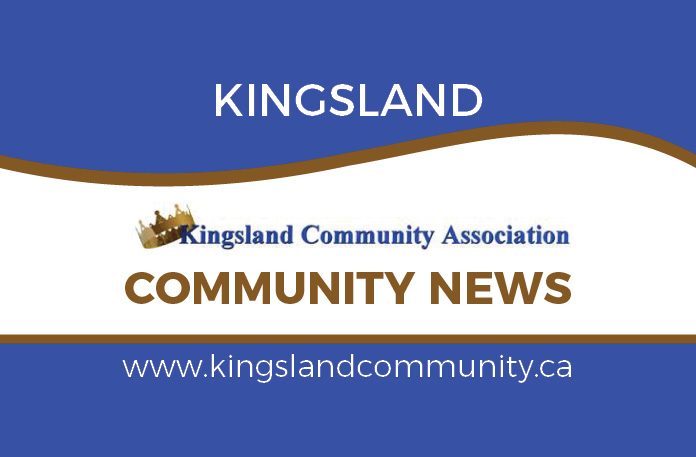Domestic Violence – A Difficult Subject
Domestic violence is a pervasive issue that affects individuals and families not only in Kingsland, but across all neighbourhoods in Calgary, regardless of socioeconomic status, race, or background. This is not an isolated problem confined to specific areas; rather, it is a widespread issue that can occur in any community. While it may be uncomfortable to discuss, raising awareness about domestic violence is crucial for fostering understanding, prevention, and support for those affected.
Understanding Helps
Domestic violence is also known as intimate partner violence. It includes controlling behaviours, sexual abuse, physical violence, verbal abuse, emotional abuse, and stalking and harassment between family members or persons in a relationship or related by virtue of children, marriage, or adoption. It can happen to anyone, regardless of age, gender, economic status, race, or sexual orientation. Recognizing the signs is the first step in addressing the issue. The impact of domestic violence extends beyond immediate physical harm. It can lead to long-term psychological trauma, financial instability, and social isolation. Children who witness domestic violence are also at risk of experiencing emotional and psychological issues.
The Signs
Notes from the Calgary Police: https://www.calgary.ca/cps/community-programs-and-resources/crime-prevention/domesticviolence.html.
In adults, the warning signs of domestic violence include:
• Personality changes (angry, moody, agitated, etc.).
• Becoming withdrawn, closed, suddenly fearful or secretive.
• Difficulty sleeping or abnormally tired.
• Lower self-esteem, feeling negative about themselves.
• Neglecting personal hygiene or personal appearance.
• Physical signs of injuries like bruises, sores, and cuts.
• Making excuses for injuries which seem implausible.
• Hiding injuries with excessive make-up, sunglasses, extra clothing.
• Appetite changes – weight loss or weight gain.
• Starting to use substances or increasing in substance use.
• Stops attending usual activities (church, gym, family and holiday gatherings).
In children, the warning signs of domestic violence include:
• Physical signs of injuries like bruises, sores, or cuts.
• Unhappiness and withdrawal – may appear irritable and/or sad and withdraw from activities they once enjoyed.
• Regression – returns to an earlier stage in development, such as clinging to caregivers, thumb-sucking, or bed wetting.
• Changes in school performance – positively or negatively – or suddenly seeking more approval from teachers.
• Anger, violence, or bullying behaviour towards other children or animals.
• Difficulty sleeping, nightmares.
• Sexually acting out by using knowledge, language, and behaviour that is out of the scope of normal sexual development.
• Sexually transmitted infections (STIs) and signs like frequent yeast or bladder infections; pregnancy in older children; difficulty sitting or walking; injury to genital areas; or child complaining of headaches and stomach aches without medical explanation.
If you see any of these signs of domestic violence, be there for the victim and listen, be non-judgmental, and help your friend or family member develop safety plans and contact resources.
Reporting Domestic Violence
If you or someone you know is involved in an emergency situation, please call 9-1-1 immediately. Otherwise, call the police non-emergency line at 403-266-1234.
If you have to leave your home and need to return to get your belongings, Calgary Police Service can assist with what is called a domestic standby where you may remove your belongings.
Prevention and Support
1. Education and Awareness: Raising awareness through education can help individuals recognize the signs of domestic violence and understand the resources available for help.
2. Support Systems: Encouraging open communication and offering support to friends or family members who may be experiencing domestic violence can make a significant difference.
3. Resources: Providing information about local shelters, hotlines, counseling services, and legal assistance can empower victims to seek help. The National Domestic Violence Hotline (1-800-799-SAFE) is a valuable resource.
If you or someone you know is experiencing domestic violence, it’s important to reach out for help. Confidential support is available, and taking the first step can lead to safety and healing. Remember, domestic violence is never the victim’s fault, and there are people and resources ready to help.
While domestic violence is a difficult subject, discussing it openly can help break the cycle of abuse. By raising awareness, supporting victims, and advocating for change, we can work towards a society where everyone feels safe. By working together, we can create a safer, more supportive environment for everyone in our community.
Domestic Violence Community Resources can be found at: https://www.calgary.ca/cps/community-programs-and-resources/victims-ofcrime/victim-resources-domestic-violence.html.
Click here to the Kingsland Community News home page for the latest Kingsland community updates.











